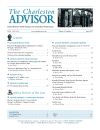
Is Digital Rights Management (DRM) Impacting E-Book Adoption in Academic Libraries?
E-books are becoming more popular in academic libraries, but rates of adoption among library users are slower than expected. This article explores the link between digital rights management (DRM) and rates of e-book adoption in academic libraries. DRM restricts the flexibility and accessibility
of e-books and frustrates users seeking an interactive online reading experience. Recent litigation concerning fair usage in the public sphere has made users aware of how DRM affects their personal e-book purchases and the level of control publishers and distributors retain over digital content.
The public experience with DRM mirrors the struggle libraries have faced for years in offering seamless access to e-books as part of their core collections. The authors will examine the ways in which DRM makes e-books less valuable to users, and explore new acquisitions models that may change
the way e-book lending occurs in the future.
Affiliations: <>, Email: vanarnhemj@cofc.edu
Publication date: 01 January 2014
- Access Key
- Free content
- Partial Free content
- New content
- Open access content
- Partial Open access content
- Subscribed content
- Partial Subscribed content
- Free trial content
